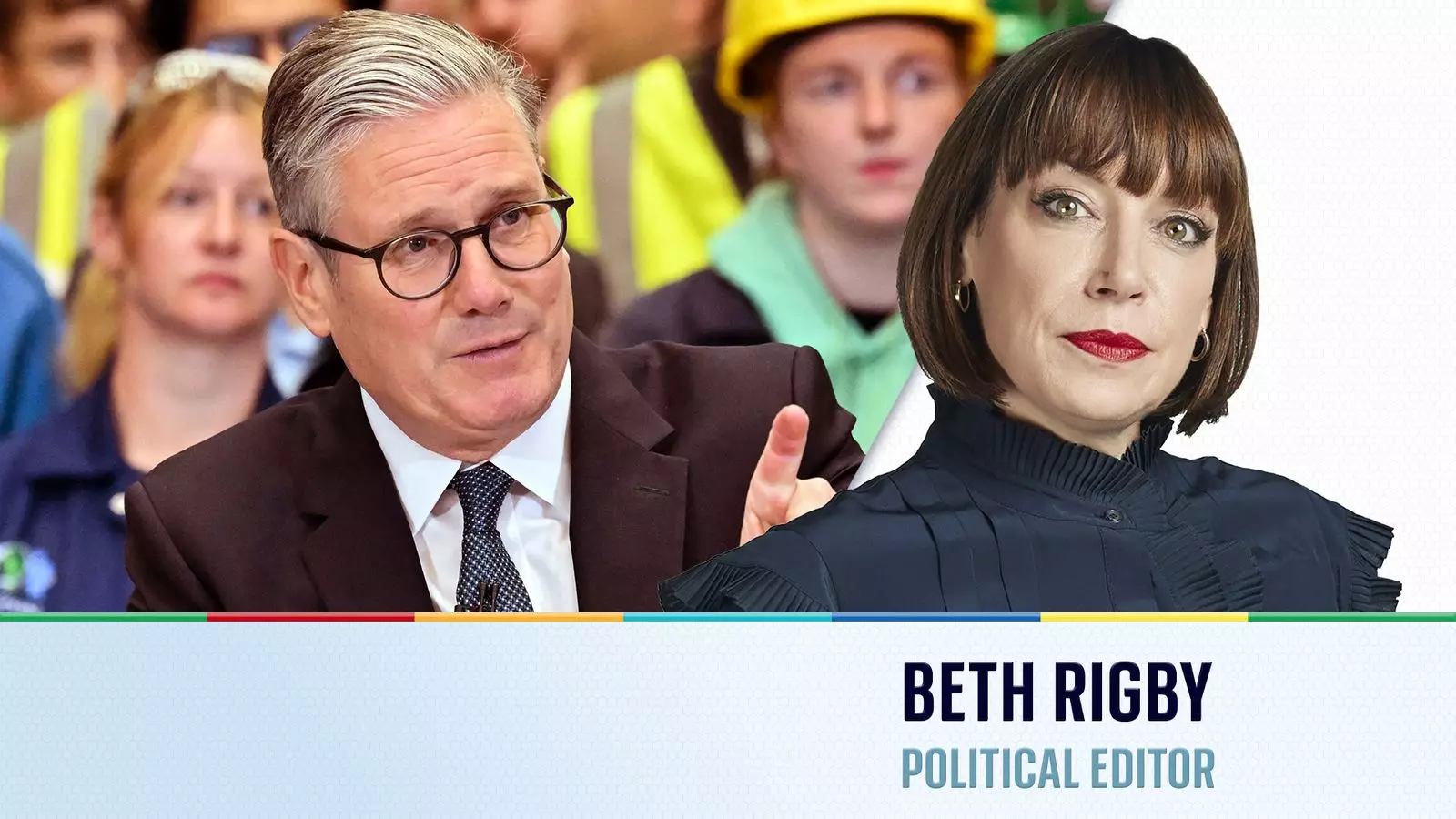Clement Attlee stands as a monumental figure in the UK’s political landscape, heralding the establishment of the welfare state. His vision laid the groundwork for the rights and protections of millions, weaving a safety net that has benefitted generations. Fast forward to today, and the narrative has drastically shifted under the leadership of Sir Keir Starmer. Rather than extending Attlee’s legacy of social safety and well-being, Starmer finds himself advocating for a hyper-militarized stance amidst a backdrop of international conflict. This dramatic pivot raises serious questions about priorities, leadership integrity, and the true cost of “being ready.”
The Militaristic Rhetoric
At a recent event in Glasgow, heralding the launch of his government’s Strategic Defence Review, Starmer’s tone was unprecedentedly grim. According to him, the UK must adopt a wartime mentality, preparing its armed forces for potential conflict against an array of modern threats. The prime minister underscored a need for “war-fighting readiness” like it’s an expectation rather than an extraordinary state. This stance feels less like a call to arms against an imminent foe and more like a calculated political maneuver. In his pursuit to redefine Labour, Starmer risks alienating core voters who yearn for investment in welfare, healthcare, and education instead of escalating military budgets.
The Catch-22 of Defence Spending
While Starmer evoked the necessity of increased defense funding—promising to adopt a target of 3% GDP dedicated to this purpose—the lack of clarity surrounding actual implementation is disconcerting. His assertions are punctuated by a significant gap between intent and action. When pressed about how and when this spending would be achieved, Starmer’s response was lukewarm, stating it is “subject to economic and fiscal conditions.” This reluctance to commit creates a puzzling scenario where protecting the nation seems to take precedence over addressing pressing social issues.
The Balancing Act of Priorities
What becomes starkly apparent is the internal conflict Starmer faces: the necessity of security against the urgent need for welfare. With local election backlash still ringing in his ears, Starmer’s government appears to be reconsidering previous cuts to essential services, like pensioners’ winter fuel allowances and the controversial two-child benefits cap. One can’t help but see this as a retreat—not merely as an acknowledgment of failure but a desperate grab for popular support. This indecisiveness threatens to undermine the integrity of Starmer’s authority, marking him as a leader more reactive than proactive.
Political Calculations or Genuine Leadership?
In addressing the nation’s security, one must question what kind of leadership Starmer wants to embody. Is he attempting to cultivate an image of a strong, defense-focused prime minister while compromising on social responsibilities? Or is he merely implementing a strategy to mitigate backlash from an increasingly dissatisfied electorate? His prior commitment to a new political direction—steering away from the entrenched “sticking plaster politics”—seems to falter at this critical juncture. Effective leadership demands not only vision but also the fortitude to make hard choices and to communicate these decisions transparently to constituents.
The Cost of Readiness
If Starmer is to transform the UK into a “warfare-ready state,” where will the resources come from? To achieve the elusive 3% target, an additional £13 billion would be required—an amount that feels insurmountable, particularly in an era marked by austerity and cuts. For a leader who peers over his shoulder at the electoral consequences, the idea of trimming back on welfare budgets may become more palatable than nurturing the very social framework that electorates expect of Labour. The question remains not only about Starmer’s choices but also about which aspects of British society will fill the budgetary void left by such military ambitions.
Starmer’s choices may soon define his political legacy. As he navigates through these tumultuous waters, he must remember that true leadership lies not just in strong posturing but in the delicate balance of societal responsibility, accountability, and hope for a better future.

